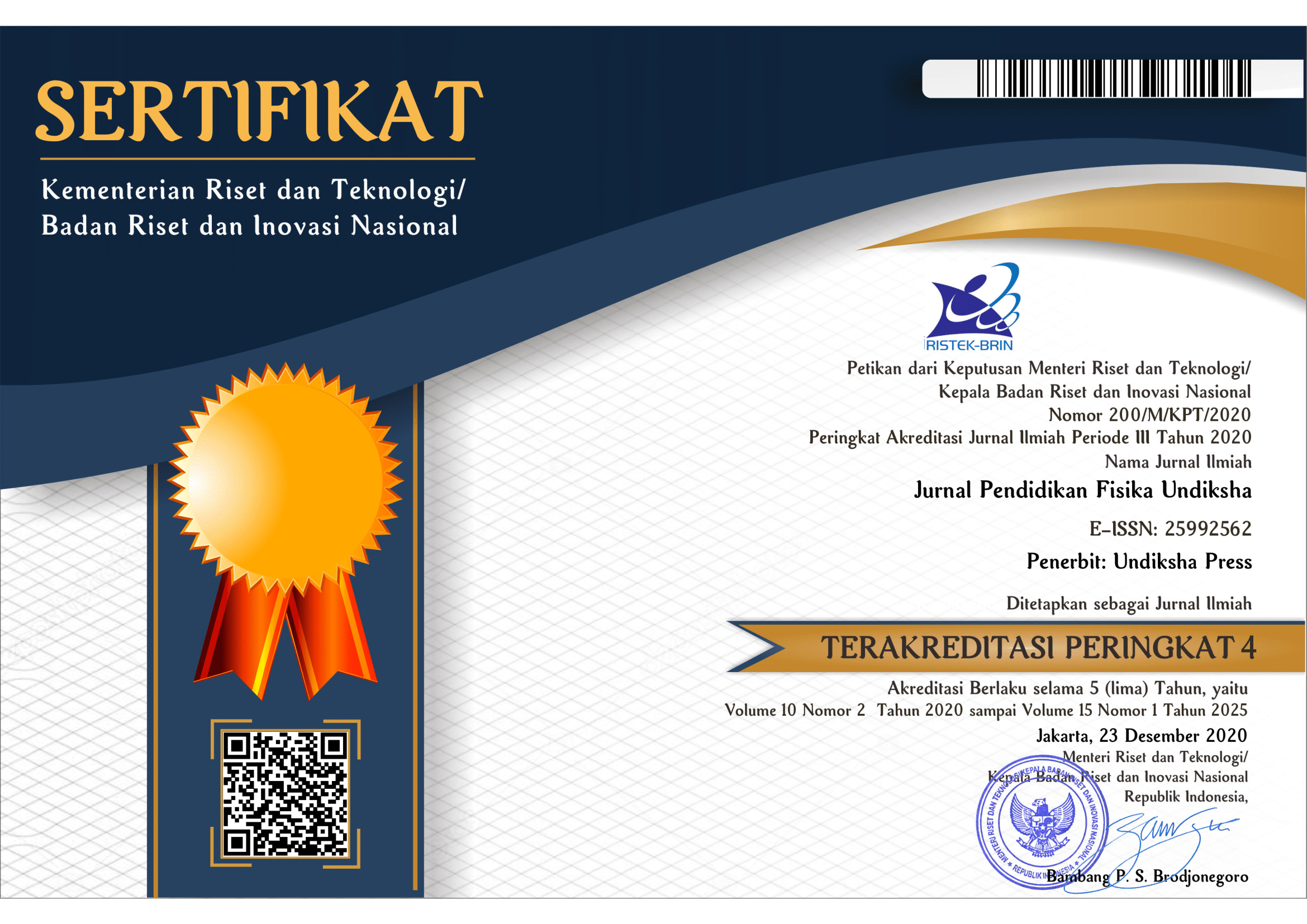EFEKTIVITAS MODEL KONFLIK KOGNITIF DALAM REMEDIASI MISKONSEPSI SISWA SMP PADA MATERI TEKANAN
DOI:
https://doi.org/10.23887/jjpf.v4i2.8258Abstract
Penelitian ini bertujuan untuk 1) mendeskripsikan profil miskonsepsi siswa, 2) mendeskripsikan perbedaan proporsi remediasi miskonsepsi siswa antara kelompok eksperimen dengan kelompok kontrol, dan 3) mendeskripsikan retensi miskonsepsi siswa. Penelitian ini adalah penelitian eksperimen semu dengan pre-testpost-test nonequivalen control group desain. Sampel penelitian diambil menggunakan teknik simple random sampling dengan jumlah sampel 62 orang siswa.Teknik analisis data menggunakan teknik analisis deskriptif dan uji perbedaan proporsi (uji z) dua pihak dengan taraf signifikansi 5%. Berdasarkan hasil analisis data, diperoleh bahwa profil miskonsepsi siswa pada materi tekanan bervariasi dengan rentangan konsepsi berkisar antara tiga sampai tujuh yang menunjukkan bahwa sebelum proses pembelajaran, siswa telah memiliki berbagai konsepsi. Remediasi miskonsepsi untuk kelompok eksperimen sebesar 54% (70% saat pret-test dan 16% saat post-test) sedangkan untuk kelompok kontrol sebesar 26% (73% saat pret-test dan 47% saat post-test), dengan nilai zhitung > zα/2 yaitu 2,80> 1,96. Miskonsepsi siswa masih resisten meskipun telah diterapkan model pembelajaran konflik kognitif.Kata Kunci : miskonsepsi, model konflik kognitif, model pembelajaran konvensional, retensi miskonsepsi.
This study aimed at describing 1) the students’profile misconceptions, 2) the differences of students’ misconceptions remediation proportion between the experimental group and the control group, and 3) the students’ misconception retentions. This research was a quasi-experimental research with pre-test post-test nonequivalent control group design. Samples were taken by using simple random sampling which consisted of 62 students. Data were analyzed by using descriptive analysis techniques and two parts proportion difference test (z test) with 5% in significance level. The result shows that the profile of the student misconceptions in the pressure subject matter varies with concept range are about three to seven kinds of conception which indicates that before learning process, the students have different conceptions. Remediation of misconceptions for the experimental group is 54% (70% on pre-test and 16% on post-test), while for the control group is 26% (73% on pre-test and 47% on post-test), with the value of zhitung > zα /2, namely 2.80 > 1.96. The percentage of students’ misconception during a retention test increases after 3 weeks when the treatment was not given. Students’ misconceptions are still resistant although cognitive conflict learning model have been applied.
keyword : misconception, cognitive conflict model, conventional learning model, retention of misconception
Published
2016-08-05
Issue
Section
Articles
License

Jurnal Pendidikan Fisika Undiksha is licensed under a Creative Commons Attribution-ShareAlike 4.0 International License.






